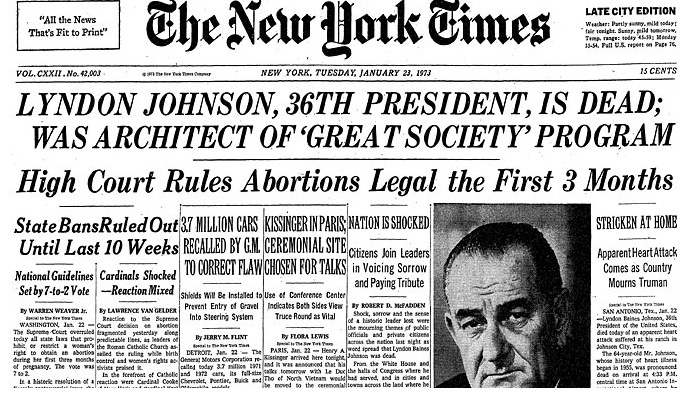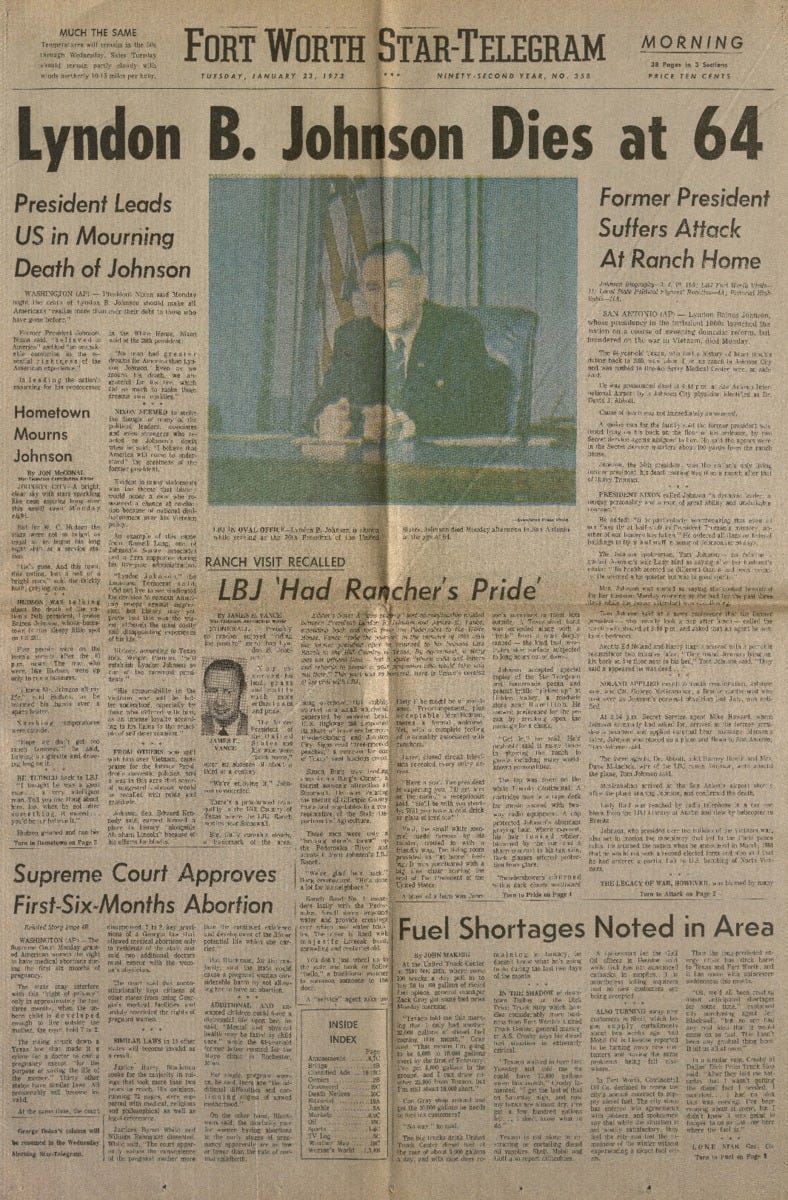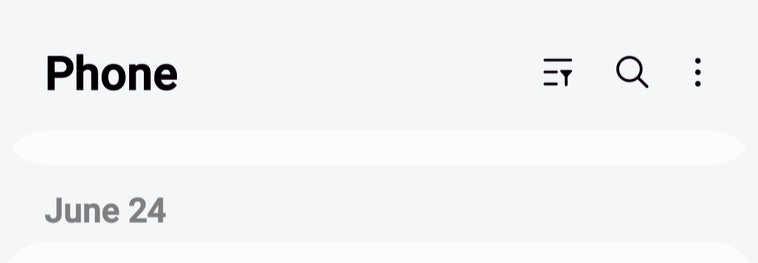On June 24, 2022, the United States Supreme Court issued its opinion in Dobbs v. Jackson, the case that overturned Roe v. Wade (1973) and Planned Parenthood v. Casey (1992), the twin pillars of abortion law.
As you know, the draft opinion was leaked the previous month, so we all knew, or to use a lawyer reference - should have known - that the “day of the dead” was coming. But, “it ain’t over until the fat lady sings.”1
On June 24, 2022, she sang and America exploded into a conflagration fueled by feelings of anger, betrayal, horror, and righteous indignation. It was as if the Supreme Court sent all women (not just some, but ALL) back to the 18th century through the stones at Craigh na Dun, without their consent.2
—
I post daily on LinkedIn, so I was watching the outrage unfold on the platform. Within minutes, user profiles were updated with posts of defiance, disbelief, and diabolical rhetoric.
It was astonishing.
Astonishing primarily because the lack of knowledge - or even the most basic understanding -of the original countours of Roe and her progeny was breathtaking. And not in a good way.
Dobbs wasn’t nearly the death knell the collective perceived it to be, at least not legally. Perhaps it was through the lens of the media soundbite, but not through the filter of reality.
Men and women alike were in full-on meltdown mode at the High Court’s “rank arrogance” that reeked of “hate for women.” They were apopletic that “50 years of precedent” was thrown out as part of a religious ritual powerful enough to violate the First Amendment’s establishment clause.3 Never mind what really happened.
In the interest of full disclosure, I host a podcast on the legal history of abortion called I Am Roe, Hear Me Roar, so I had a slight advantage over those who weren’t familiar with the reality of Roe, as opposed to the mythology of Roe.
The level of offense being expressed with unbridled invective was unique in my lifetime. It was disturbing, very disturbing.
Curiously, posts boasted about the criticality of unfettered access to abortion so an unwanted pregnancy couldn’t impair women’s ability to live their lives, particularly their professional lives, on their own terms. It was bizarre.
In all of this, one thing was certain.
There was no longer any debate as to the non-negotiable need for abortion to ensure women could participate in life, and particularly professional life, on the same terms as men.
This specific argument had been raised in a handful of post-Roe Supreme Court arguments, endorsed primarily by Ruth Bader Ginsburg, but it hadn’t populated American vernacular, until now.
In the immediate aftermath of Dobbs, one post, in particular, had a certain shock value and stickiness I couldn’t (and still can’t) shake. It’s from a prolific content creator on LinkedIn … and by all reasonable standards an extremely successful business woman. FYI - I don’t know anything about her outside of what she posts on the platform.
The post started with “If you are reading this sentence, you are an abortion beneficiary.”
To support her premise, she referenced the Starbucks barista who, but for her abortion, wouldn’t be available to brew your latte in the morning. No abortion, no barista, no coffee. Same goes for the CPA who does your taxes. No abortion, no CPA, not taxes.
#compelling
The author didn’t stop there.
She added “Abortion Beneficiary” to her LinkedIn headline. Apparently, Abortion Beneficiary is included on her business cards as well, something she recommends all women do … stat.
--
Back to June 24, 2022.
Roe v. Wade Overturned and High Court Strikes Down Roe dominated the headlines - worldwide. It stood in sharp contrast to the media coverage of Roe in early 1973.
President Lyndon B. Johnson, the 36th President of the United States, died the same day Roe was decided, January 22, 1973, and negotiations to finalize the Paris Peace Accords - the treaty that ended the Vietnam war - were wrapping up.
The next day, January 23, 1973, Vietnam and the United States signed the Agreement on Ending the War and Restoring Peace in Vietnam. Final signatures were affixed on January 27, 1973.
It was certainly a busy news week with significant competition for the front page. Abortion was not the top priority. In fact, the decision was above-the-fold on just a handful of papers.
Here are a few examples.
Given the news of a President’s death and the end of a long and bitter war, the coverage of Roe all but disappeared within a day or two. Since there wasn’t much cultural fuss about Roe in the early days, it amounted to a giant “nothing burger.”
Until it didn’t.
But, I digress.
Back to June 24, 2022.
While nearly universal condemnation of the Dobbs decision was capturing America’s attention, by lunchtime, I was distracted by another development.
My phone rang at 12:44 pm. It was my mom.
She was in tears, like real tears, which is unusual for her. Mom is 84 and pretty stoic, but not that day.
All she could say was …
Kelley, I am so grateful I was able to raise you. I thank the Lord daily for the privilege to be your mom and to your birth mother for giving you to me. (Dad is deceased, so this exchange was just with her).
I was adopted at 2 months old.
Here’s mom and me at my bar swearing in - October 2008.
In an instant, the headlines were white noise …. as for me, things were about to get real.
We’re in the middle of a culture war that dismisses adopted children as the “special cases” who were “privileged enough” to be wanted and not thrown into the foster care system to languish into nothing.
Adopted kids are the outliers, the inconvenient ones who disrupt the monolithic narrative for women’s empowerment.
I could no longer ignore the reality of the circumstances of my birth, nor could I ignore the reality of millions of women with unwanted pregnancies.
This was no bueno. I had some homework to do.
—
Later that afternoon, I felt compelled to text my birth mother. We hadn’t been in communication for quite some time, but I needed to reach out … immediately. I wasn’t sure if I was opening a Pandora’s box, but it didn’t matter in that moment.
Here is the first part of our exchange.
My birth mother was 13 when she got pregnant with me, 14 when I was born.
After a few months, her mom noticed her thickening up and took her to the family doctor, who promptly measured her belly with a ribbon ruler. It was official, I was due October 22, 1973.
Not the news she wanted to hear ….
Had my birth mother gotten to the doctor just a month earlier, she could have aborted me per the new Supreme Court ruling, Roe v. Wade, decided just a few months before. She much prefered to rid herself of the problem and put this unfortunate incident behind her. The trimester abortion framework articulated in Roe indicated that she was a month too far along to legally terminate her pregnancy.
With the help of her parents, my birth mother moved into a home for unwed mothers where she would continue her education and connect with similarly situated teenagers.
October 22, 1973 came and went. No baby …
November 22, 1973, exactly one month later. A baby …
It was Thanksgiving Day.
I met her in 1994. I was 21 and she was 35. She told me the story.
—
Turns out, I’d beaten the odds and survived Roe v. Wade in the womb. I wouldn’t fully understand the implications of this reality until the summer of 2022. Nor did I understand what it would mean for the trajectory of the second half of my life.
A reckoning was coming, a reckoning with reality, a reckoning with the truth.
So, no, I am not an abortion beneficiary. And, I’m happy to make my own coffee.
Stay with me as I keep unpacking and revealing my ongoing journey to finding, understanding, and confronting the TRUTH.
With heartfelt thanks,
Kelley
November 20, 2022
Before you bite my head off for using an insensitive term that hurts no one’s feelings, check out the Wikipedia page on this phrase: There you will find that the “fat lady” refers to the valkyrie Brunnhilde, a character from the last cycle of Wagner’s Der Ring des Nibelungen … Götterdämmerung. Call me a valkryie any day!
Craig na Dun is a pop culture reference to the standing stone circle in Inverness, Scotland featured in Outlander. When Claire Randall, the main character, steps through the cleft stone in 1945, she travels back in time to 1743.
U.S. Constitution, Amendment 1. Congress shall make no law respecting an establishment of religion, or prohibiting the free exercise thereof; or abridging the freedom of speech, or of the press; or the right of the people peaceably to assemble, and to petition the Government for a redress of grievances.











Holy cow. I literally have chills Kelley. What an amazing and personal story. It is life stories such as yours that make this issue and debate real. When I was undergrad and thinking of law school I really gravitated to the whole series of cases from Griswold on and wondered if we would see a return to an actual constitutional principle regarding abortion. Like you, I was puzzled somewhat by the response to Dobbs given what the decision actual did. I think the Left fears the legislative process with this and so many other issues. Having to debate and make your case and then stand before voters with accountability is not really their strong suit. God bless your mom and birth mom and thanks again for the powerful and moving story. Happy Thanksgiving.